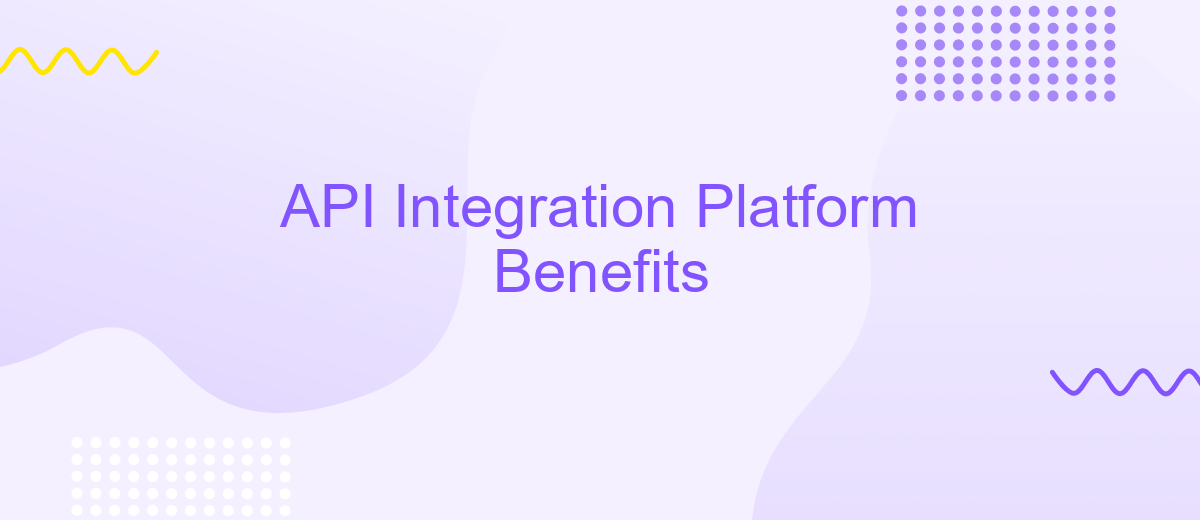API Integration Platform Benefits
In today's rapidly evolving digital landscape, businesses are increasingly relying on API integration platforms to streamline operations and enhance connectivity. These platforms offer a unified solution for connecting disparate systems, enabling seamless data exchange and improved collaboration. By leveraging API integration, companies can boost efficiency, reduce costs, and accelerate innovation, ultimately gaining a competitive edge in their respective industries. Discover the transformative benefits of API integration platforms in this comprehensive article.
Streamlined API Integrations
Streamlining API integrations is crucial for businesses seeking to enhance operational efficiency and reduce development time. A well-designed API integration platform simplifies the process by providing a unified interface for connecting disparate systems, thereby eliminating the need for extensive custom coding. This approach not only accelerates the integration process but also minimizes errors, ensuring seamless data flow across applications.
- Reduces time-to-market by automating repetitive tasks.
- Facilitates easy scaling as business needs evolve.
- Enhances data accuracy and consistency across platforms.
- Improves collaboration between development and IT teams.
- Offers robust security features to protect sensitive data.
By leveraging a streamlined API integration platform, organizations can focus more on innovation and less on technical complexity. This enables them to quickly adapt to changing market demands and stay ahead of competitors. Furthermore, with reduced manual intervention, businesses can allocate resources more effectively, driving growth and improving customer satisfaction. Ultimately, a streamlined approach to API integration empowers companies to create more agile, responsive, and interconnected digital ecosystems.
Enhanced Connectivity and Interoperability

API integration platforms significantly enhance connectivity by acting as a bridge between disparate systems, enabling seamless data exchange and communication. This enhanced connectivity ensures that businesses can synchronize their operations across various platforms, reducing the need for manual data entry and minimizing errors. By leveraging advanced integration tools, organizations can streamline workflows, improve data accuracy, and enhance overall efficiency. The ability to connect multiple applications and services allows for real-time data updates, ensuring that decision-makers have access to the most current information.
Interoperability is another critical advantage offered by API integration platforms. By facilitating communication between different systems, these platforms enable businesses to integrate various applications, regardless of the underlying technology or architecture. For instance, services like ApiX-Drive provide user-friendly interfaces that simplify the integration process, allowing users to connect applications without extensive technical knowledge. This capability ensures that businesses can quickly adapt to changing technological landscapes, fostering innovation and flexibility. Ultimately, enhanced interoperability allows organizations to leverage existing technologies while seamlessly incorporating new tools, ensuring a cohesive and efficient operational ecosystem.
Improved Scalability and Performance

API integration platforms play a crucial role in enhancing the scalability and performance of modern applications. By providing a unified interface for connecting disparate systems, these platforms streamline communication and data exchange, which is essential for scaling operations efficiently. As businesses grow, the demand for seamless integration of various services increases, and an API integration platform ensures that this process is both manageable and effective.
- Centralized Management: API platforms offer a centralized hub for managing all integrations, reducing the complexity involved in handling multiple APIs.
- Load Balancing: They facilitate load balancing, distributing requests evenly across servers to prevent any single point of failure and ensure consistent performance.
- Resource Optimization: By optimizing resource usage, these platforms enhance the performance of applications, allowing them to handle higher traffic volumes without degradation.
Incorporating an API integration platform into your infrastructure not only boosts scalability but also improves the overall performance of your applications. This enables businesses to respond swiftly to market demands and accommodate growth without compromising on speed or reliability. As a result, companies can focus on innovation and expansion, knowing their backend systems are robust and capable of supporting increased workloads.
Increased Security and Governance

API integration platforms play a crucial role in enhancing security and governance within an organization. By centralizing API management, these platforms provide a unified approach to monitoring and controlling data flow across various applications and services. This centralized control ensures that only authorized users have access to sensitive data, reducing the risk of unauthorized access and data breaches.
Moreover, these platforms offer robust governance capabilities, allowing organizations to define and enforce security policies consistently across all APIs. This ensures compliance with industry standards and regulations, providing peace of mind to businesses handling sensitive information. The ability to track and audit API usage further strengthens security by identifying potential vulnerabilities and addressing them proactively.
- Centralized monitoring and control of data flow
- Consistent enforcement of security policies
- Compliance with industry standards and regulations
- Comprehensive tracking and auditing of API usage
In conclusion, API integration platforms significantly bolster an organization's security posture by providing enhanced control and visibility over API interactions. By leveraging these platforms, businesses can maintain a secure environment while ensuring that their API strategies align with governance frameworks and regulatory requirements. This not only protects sensitive data but also fosters trust among stakeholders and customers.


Reduced Development Costs and Time-to-Market
Leveraging an API integration platform significantly reduces development costs by streamlining the process of connecting disparate systems. Instead of building custom integrations from scratch, businesses can utilize ready-to-use connectors that simplify data exchange between applications. This approach minimizes the need for extensive coding and reduces the dependency on specialized developers, leading to substantial cost savings. By automating integration processes, platforms like ApiX-Drive enable organizations to allocate resources more efficiently, focusing on core business activities rather than technical challenges.
In addition to cost savings, using an API integration platform accelerates time-to-market for new products and services. The ability to quickly integrate various applications and services means that businesses can respond swiftly to market demands and customer needs. ApiX-Drive, for instance, offers a user-friendly interface that allows for the rapid setup of integrations without requiring extensive technical expertise. This agility not only enhances competitive advantage but also ensures that companies can innovate and adapt in a fast-paced digital landscape, ultimately driving growth and success.
FAQ
What are the primary benefits of using an API integration platform?
How does an API integration platform improve business operations?
Can small businesses benefit from using an API integration platform?
What types of integrations can be achieved with an API integration platform?
How does an API integration platform enhance data security?
Routine tasks take a lot of time from employees? Do they burn out, do not have enough working day for the main duties and important things? Do you understand that the only way out of this situation in modern realities is automation? Try Apix-Drive for free and make sure that the online connector in 5 minutes of setting up integration will remove a significant part of the routine from your life and free up time for you and your employees.

